| One of the best known and most infamous characters in
Darlaston was scrap collector Billy Muggins, who was often
talked about, and raised many a smile in the town. He was
born in Eldon Street around 1904, and earned a living
pushing his cart around the town, collecting scrap metal. He
is fondly remembered for his warm and friendly demeanour,
and his sayings, such as "Gorrenny Missis?", "Hope it dow
rain", and "Nice day ay it." He collected all kinds of
scrap, and crudely repaired holes in old buckets and bowls,
which he sold to people during his rounds. He later lived in
Rough Hay Road, then Mill Street, and finally in Watson Road
Moxley, before retiring, along with his sister, to the Bush
care home. He died at Goscote Hospital, Walsall in January
1974. His real name was William Walters, although everyone
knew him as Billy Muggins. |
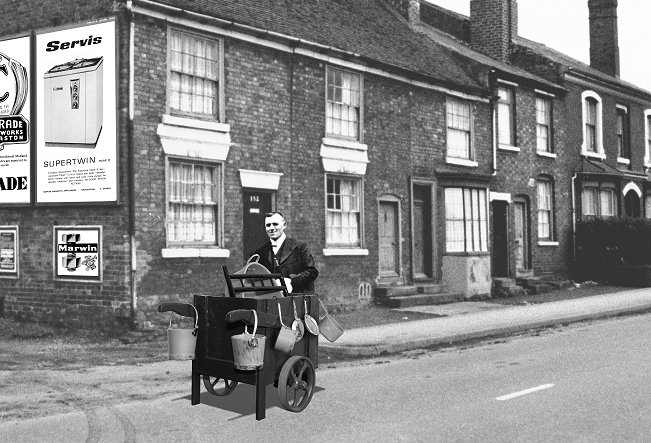
A made-up picture of Billy pushing
his familiar cart along Moxley Road, possibly heading
for the scrap yard. |
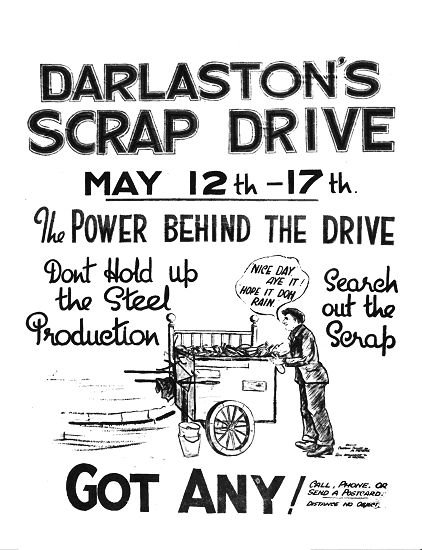 |
Darlaston sign writer Albert
Peters' brilliant characterisation of Billy for a
wartime poster. From the
collection of the late Howard Madeley. |
| |
|
| Read about the post-war
Horticultural and Sports Show |
 |
| |
|
|
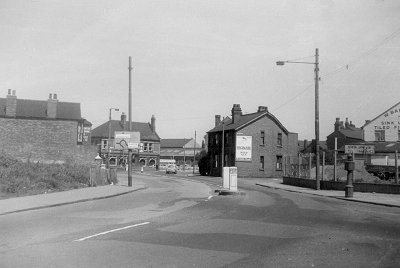
Catherine's Cross in the late
1960s. |
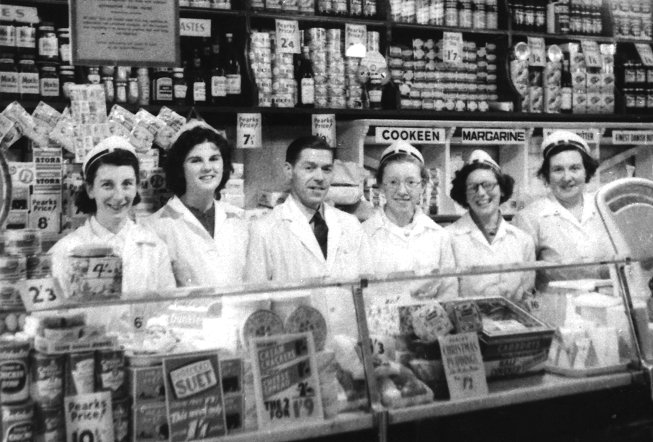
The staff at Pearks' once
well-known grocery shop in King Street. From the
collection of the late Howard Madeley. |
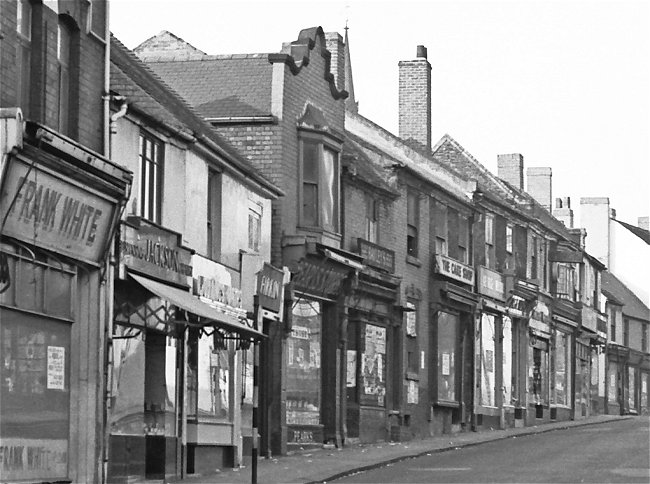
The empty shop in the middle of
the photograph belonged to the Bayley family, who were
pork butchers. The family ran the shop from the 1840s
until the 1950s when Miss Ann Bayley retired. The family
lived in the house next door, which was the last private
house in King Street. Photo courtesy of Bill Beddow.
|
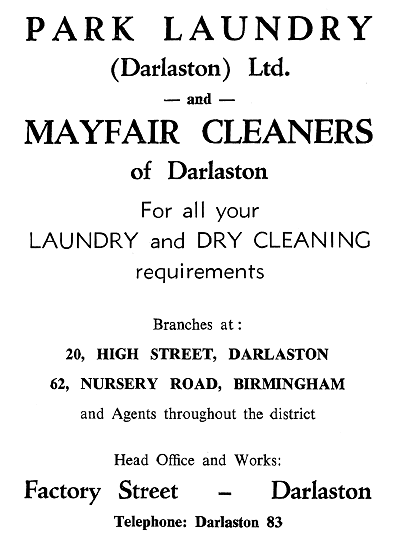 |
Park Laundry was once a well known
site in Factory Street and the surrounding area. Its
tall chimney was a familiar landmark.
An advert from the mid 1950s.
Courtesy of Christine and John Ashmore. |
| An advert from 1952. |
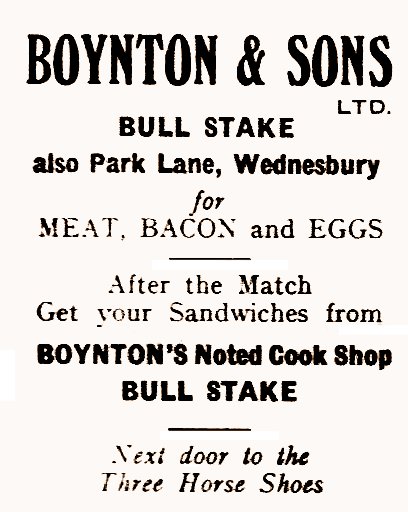 |
| Mr. D. J. A. Phillips,
Darlaston Public Works Superintendent standing beside a
council van in the yard next to the Town Hall, in about
1960. Courtesy of Ken
Phillips. |
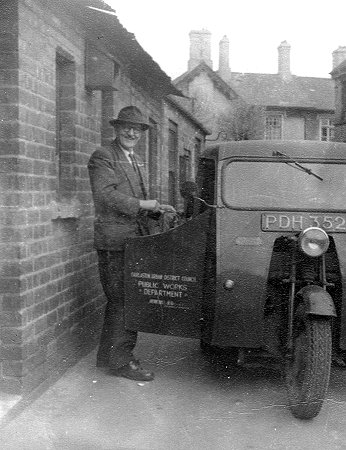 |
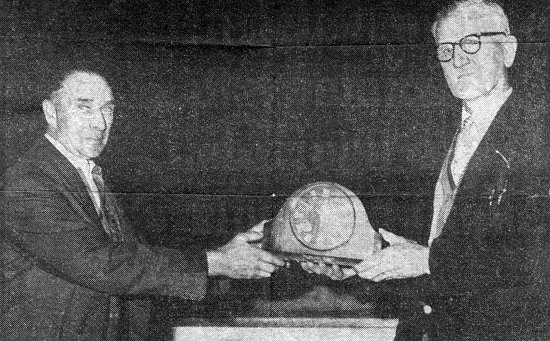 |
Mr. D. J. A. Phillips,
Darlaston Public Works Superintendent is presented with
a long service award by Mr. J. Spooner on behalf of the
council workmen. He had completed 40 years service with
the council. From an unknown newspaper.
Courtesy of Ken Phillips. |
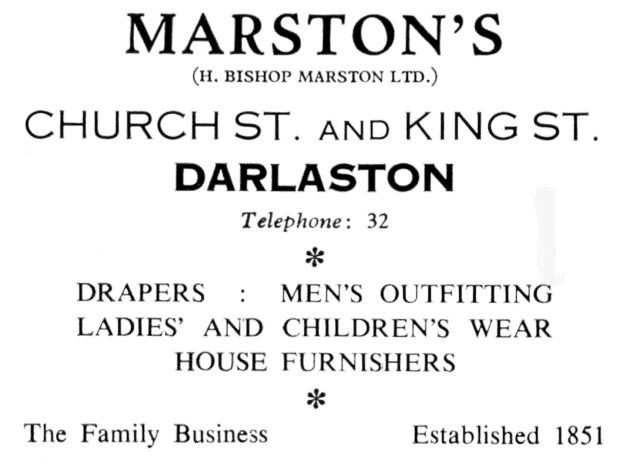
An advert from the mid 1950s for
Marston's, the once well known outfitters in Church
Street. Courtesy of Christine and John Ashmore. |
| The Leys Hall was built after the war, as an
asset for the local community. All kinds of events,
family functions, classes and meetings have been
held there. In the 1950s and 1960s, on Thursday
afternoons, it was a venue for the old age
pensioners. There was entertainment, day trips,
bingo, sing songs, refreshments, and old friends to
meet. It was very popular. |
|
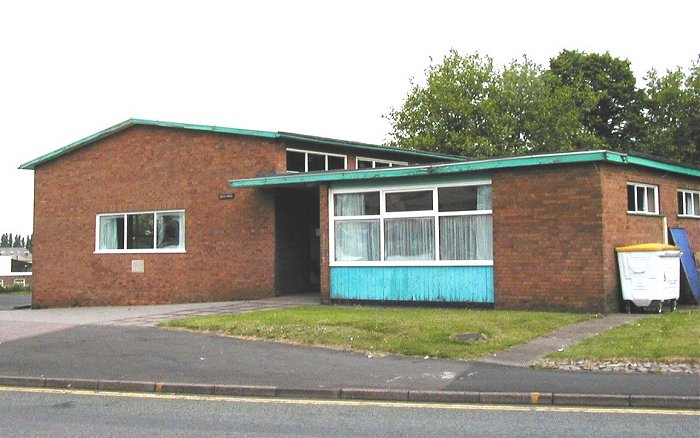
The Leys Hall in 2001. |
|
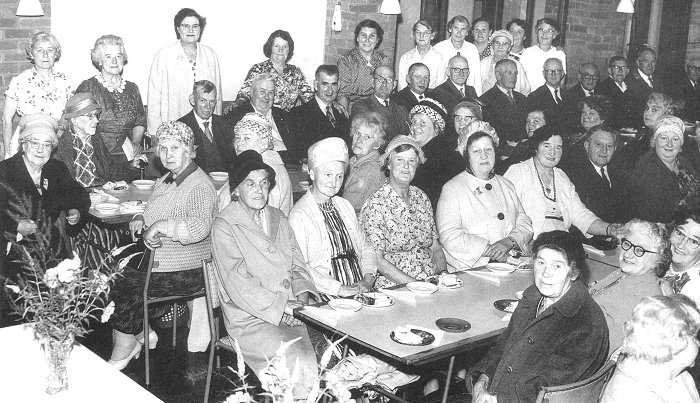
A senior citizens' Christmas
party, held at the hall in the 1950s. |
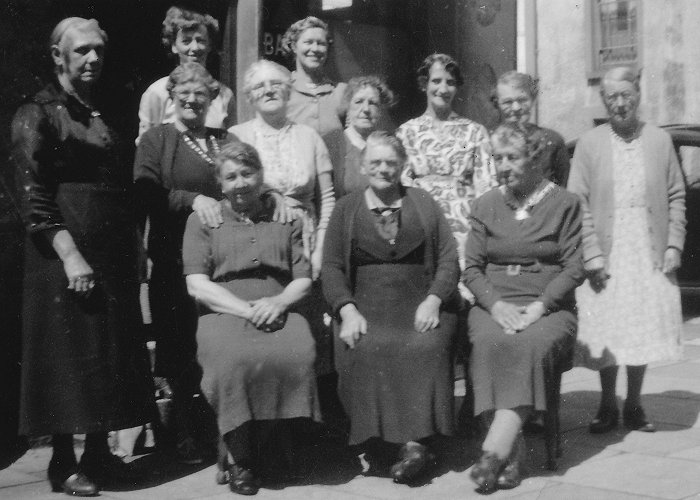
Some of the old age pensioners
on a day trip in the late 1950s. Third on the left,
in the middle row, is my grandmother, Sarah Flavell
and on the extreme left is her sister, Lizzie. |
|
|
View the Darlaston
listing from
a 1961-62 Trades Directory |
 |
| |
|
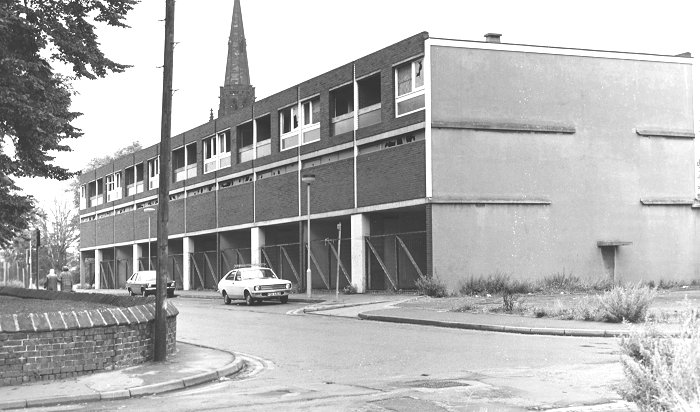
The council's "folly". This row of
shops in New Road was built in the early 1960s. The
plans followed by the builders had been copied back to
front, and so the shops were also built back to front.
Because of this they were never occupied, and were
demolished in the late 1970s to
make way for the ASDA supermarket. |
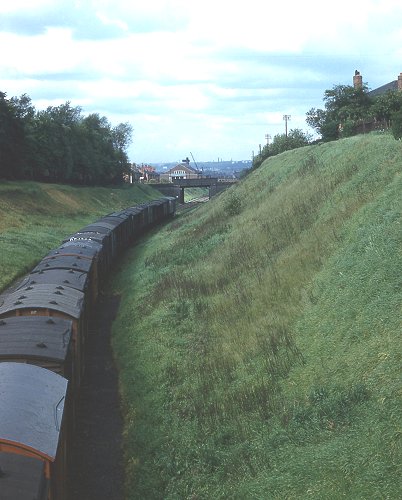 |
In the mid 1960s the Darlaston
Branch railway line from James Bridge to Wednesbury
closed as part of the Beeching cuts. This fine
photograph from 1959 was kindly sent by Lynn Horton who
lives in Toronto. It was taken in 1959 by her Darlaston
born grandfather, Sydney Patrick Horton.
The wagons were stored on the
line, which was coming to the end of its life. Behind the
bridge is Darlaston baths. The grey structure on the
right of the bridge, is the top of the old railway
footbridge from Victoria Road to Station Street. |
| In January 1965 Darlaston lost its railway station
when the line was closed to passenger traffic. |
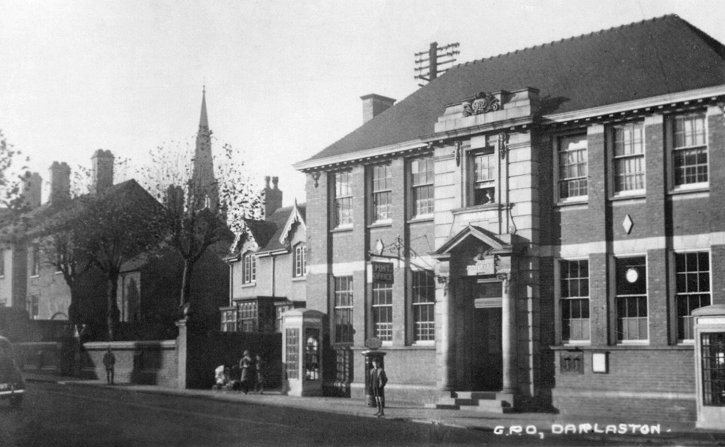
The post office. From an old postcard.
|
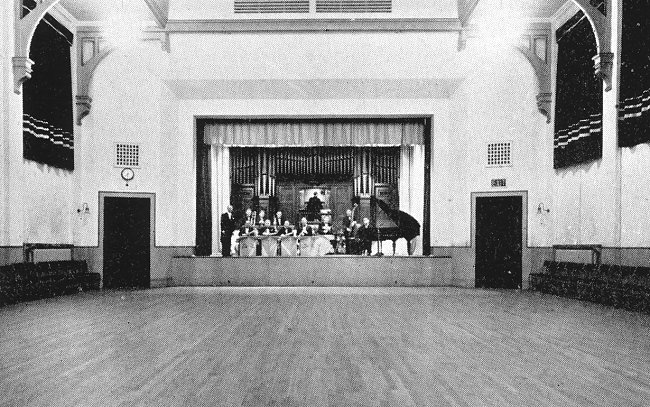
The Town Hall in 1963. |
|
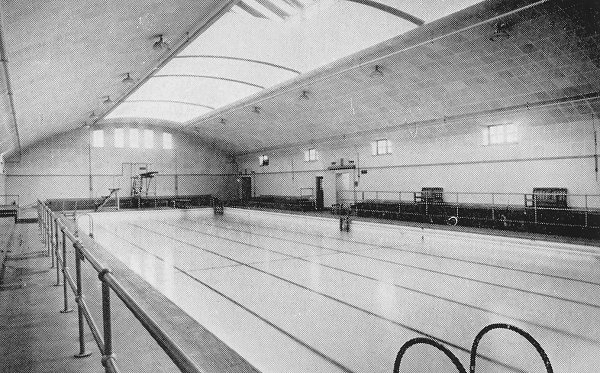
The public baths in 1963. |
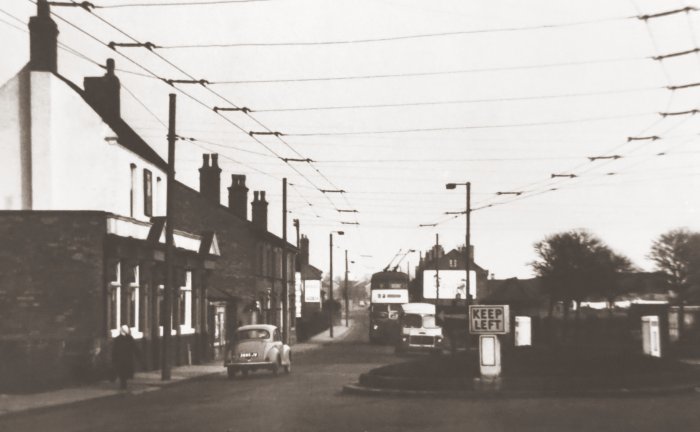
The western end of Moxley Road in the
early 1960s.

An aerial view taken in the mid 1960s.
From a newspaper cutting from an unknown newspaper.
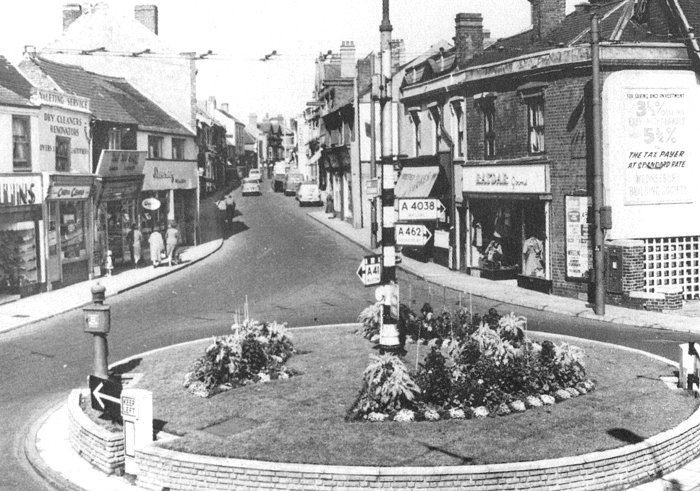
The Bull Stake in the 1960s.
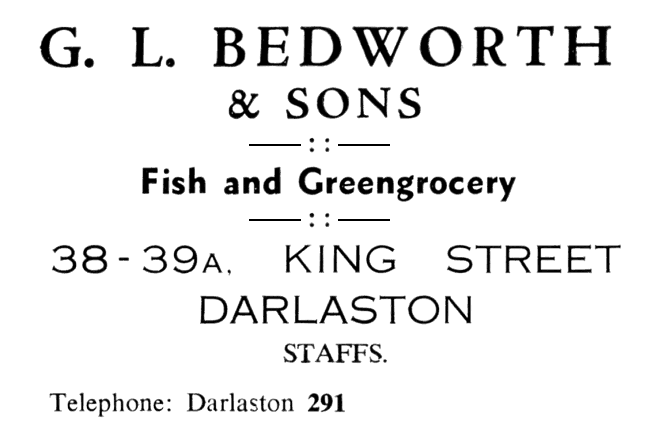
Darlaston's first supermarket, the
once-popular Bedworth's store. Courtesy of Christine and John Ashmore. |
|
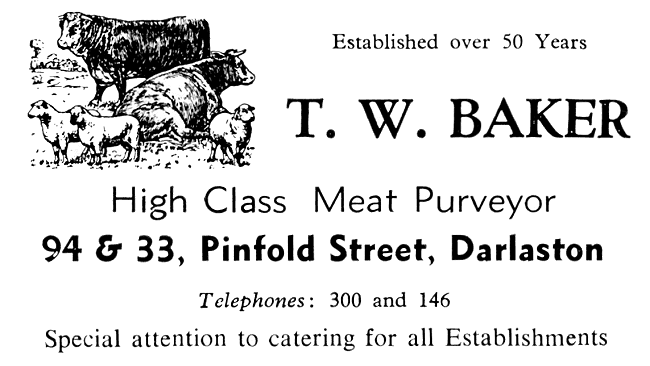
One of Darlaston's oldest
butchers. Courtesy of Christine and John Ashmore. |
|
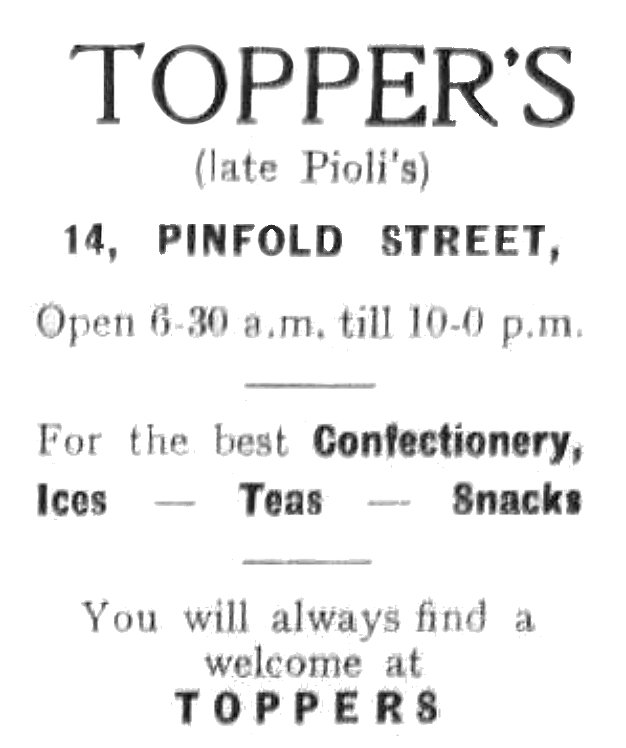
An advert from 1952. |
|

An advert from 1952. |
 |
 |
 |
Return to
World War Two |
Return to
Contents |
Proceed to
Recent Times |
|